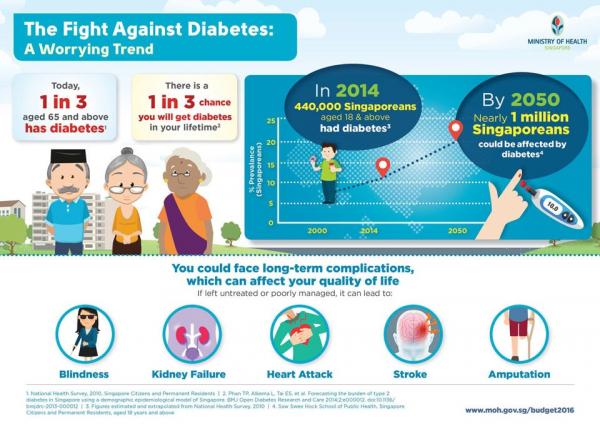Primary Care Network (PCN) and Chronic Disease Management
Primary Care Network (PCN)
The Frontier GP clinics are part of the Primary Care Network (PCN). PCN is a network of GP clinics aiming to deliver better and more holistic chronic care to patients in the community via a team-based care approach. The team leader is the usual GP looking after the patient’s chronic condition but he/she now is being supported by a team of nurse counsellors and care coordinators. This expands the time for patient care by the primary care team. It also enables the doctor to have more time to focus on the patient’s medical issues.
For a list of the GP Clinics under Frontier Primary Care Network (Frontier PCN), please click here. Currently Frontier PCN comprises 12 Frontier clinics working in collaboration with 32 independent GP clinics.
How can our nurse counsellors and care coordinators help you?
Our nurse counsellors conduct counselling sessions to help patients understand their chronic conditions better, set achievable lifestyle targets and empower them to better manage their chronic conditions. They closely monitor our patients and ensure adherence to treatment regimes, lifestyle modifications on diet, exercise, and smoking cessation. They also help the doctors to teach patient insulin injection techniques, assess patient’s dexterity control and ability to self-administer insulin injections safely. As for patients with asthma, our nurse counsellors will teach inhaler techniques and assess their inhaler coordination skills. Besides face to face consultations, our nurse counsellors also make follow-up telephone consultations to our patients to give them confidence and to find out if they are coping well with their care plan.
In addition, our nurse counsellors also conduct thorough Diabetic Foot Screenings (DFS) for patients with diabetes and impart important foot care advice.
The team also comprises of care coordinators who help to coordinate such services and mobile Diabetic Eye Screening services. They work closely with community service providers and public healthcare institutions so that care can be provided in a more holistic and integrated manner. They also help our doctors track the progress of patients’ chronic diseases by setting up a Chronic Disease Registry.
What are Chronic Diseases?
Chronic diseases are long-term medical conditions and are the leading causes of disabilities and deaths in the world (Health Promotion Board, 2013). The onset of a chronic disease is often silent and may not have any visible or outward symptoms and treatment and diagnosis is often sought at a much later stage. This may result in severe health complications which can greatly affect quality of life and can be financially draining for the affected individuals and his/her family members. Most importantly, with early detection and good control of the chronic conditions, the risk of complications can be reduced.
Long term complications of Diabetes: How does it affect our quality of life?
Our Minister for Health, Mr Gan Kim Yong had recently declared “war on diabetes” in a budget speech made in 2016. Why is this so?
Diabetes is a growing problem in Singapore. Figures from the National Health Survey 2010 revealed that 11.3%, or 1 in 9 Singapore residents (Singapore citizens and Permanent Residents) aged 18 – 69 years were affected by diabetes. Of these, 1 in 3 diabetics were unaware that they had diabetes.
Among the diabetics who were aware of their disease, 1 in 3 had poor control of their condition. If left undetected, untreated or poorly managed; diabetes can lead to heart disease, stroke, kidney failure, blindness and amputations. In fact, 4 Singaporeans a day lose a limb or appendage due to diabetic-related complications (Ministry for Health, 2016).

Adapted from: Ministry of Health Initiatives for 2016 -The Fight Against Diabetes
Other Chronic Diseases: How can they affect us?
Besides Diabetes Mellitus, there are other chronic diseases like hypertension and hyperlipidemia which can have serious impact on our health and their long term complications can be similarly debilitating both physically and financially.
If left untreated or inadequately treated, complications like coronary artery disease, heart failure, stroke, narrowing of the blood vessels in limbs (also known as peripheral artery disease) and kidney failure can develop (Health Promotion Board, 2013). Other chronic conditions such as Asthma and COPD (Chronic Obstructive Pulmonary Disease) can also be debilitating and should be adequately controlled.
CHAS and Medisave (CDMP) schemes
All our clinics are accredited under CHAS and Medisave (CDMP) schemes, which are government schemes to help defray some of the out-of-pocket payment for management of approved chronic conditions.
References:
- Lee.H.L (2015,Jul,1). Singapore feeling impact of rapidly ageing population | Todayonline. Retrieved from http://www.todayonline.com/singapore/singapore-feeling-impact-rapidly-ageing-population
- Health Promotion Board. (2013). Health topics. What are chronic diseases. Retrieved from: http://www.hpb.gov.sg/HOPPortal/health-article/3396
- Health Promotion Board. (2013). Disease and condition. Hypertension. Retrieved from http://www.hpb.gov.sg/HOPPortal/dandc-article/766
- Ministry of Health. (2015). Ageing in Singapore in the next 50 years. Speech presented at SG50 Scientific Conference on Ageing, Singapore. Retrieved from https://www.moh.gov.sg/content/moh_web/home/pressRoom/speeches_d/2015/speech-by-mr-gan-kim-yong–minister-for-health–at-the-sg50-scie.html
- Ministry of Health Initiatives for 2016 – The Fight Against Diabetes. Retrieved from: https://www.moh.gov.sg/content/moh_web/home/pressRoom/highlights/2016/Budget2016/the-fight-against-diabetes.html
- Yarnall KSH, Østbye T, Krause KM, Pollak KI, Gradison M, Michener JL (2009. Family physicians as team leaders: “time” to share the care. Prev Chronic Dis;6(2). Retrieved from: http://www.cdc.gov/pcd/issues/2009/apr/08_0023.htm


 Login
Login
 Download App
Download App 
